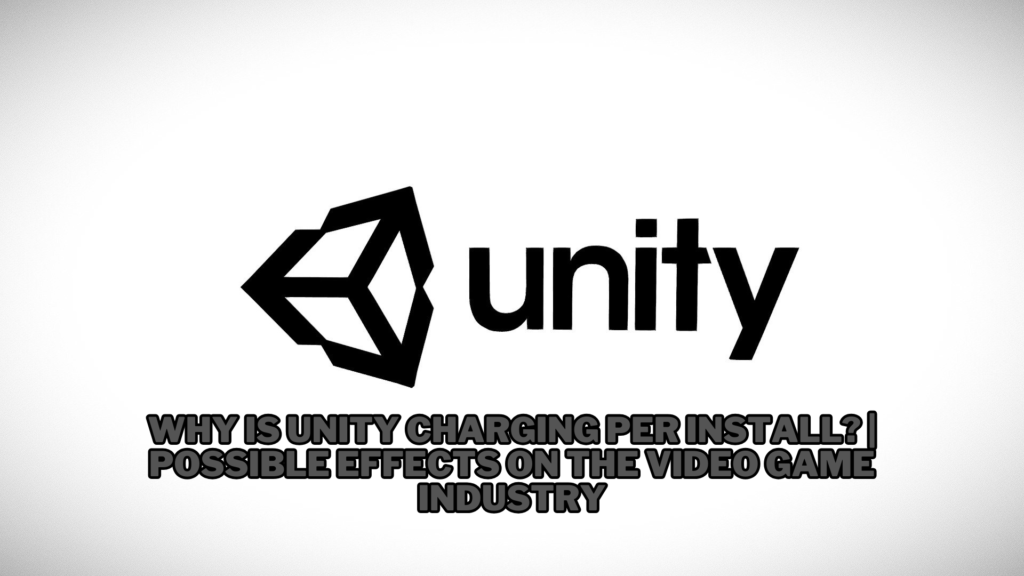Unity Technologies made waves this week by announcing a new fee structure that charges game developers on a per-install basis for games made with Unity. The change marks a dramatic shift from Unity’s previous royalty-free model. What is behind this controversial move, and what could it mean for indie developers and the game industry as a whole?
Unity to start charging per install
The New Unity Fee Structure
Hi everyone, we’ve heard your questions and feedback and are working hard to answer them as soon as possible. We’ve aggregated some of your top questions in our forum, and will plan to address them in the main forum thread here: https://t.co/amKDLScAvY
— Unity (@unity) September 12, 2023
Effective January 1, 2024, developers will be charged a “Unity Runtime Fee” each time a game using Unity is installed beyond certain thresholds:
- For Unity Personal and Plus users, fees kick in after $200k revenue in 12 months and 200k lifetime installs
- For Unity Pro and Enterprise, fees apply after $1M revenue and 1M installs.
The fees start at $0.20 per install for Personal, scaling down as installs increase. Pro and Enterprise users pay $0.15 and $0.125, respectively, with volume discounts.
Why Per-Install Charges?
Unity says the fees relate to the “value exchange” between themselves and developers, allowing them to monetize the separately licensed Unity Runtime executing games on player devices.
In a follow-up statement, Unity said the change will only affect “successful games generating revenue way above the thresholds.” The intent is to avoid impacting developers still finding their feet.
Developer Backlash
We want to acknowledge the confusion and frustration we heard after we announced our new runtime fee policy. We’d like to clarify some of your top questions and concerns:
Who is impacted by this price increase: The price increase is very targeted. In fact, more than 90% of our…
— Unity (@unity) September 13, 2023
Despite Unity’s intent, the announcement has provoked anger and confusion within the game dev community:
- Retroactive fees on existing games crossing thresholds
- Challenges for free games, demos, bundles
- Possible charges from pirated copies
- Multiple charges for reinstalls and new devices
Many have pledged to switch to alternative engines like Unreal due to the fees.
Wider Industry Impacts
If the fees cause an exodus, it could be detrimental to Unity’s reputation and reduce its strong market share of independent developers. However, game creators with established workflows may find switching costly.
The fees may make some projects unfeasible for indie developers relying on Game Pass, bundles, or other flexible business models. Limiting creativity and innovation seems at odds with Unity’s mission.
There are also concerns about tracking installs accurately and fairly and preventing manipulation of fees through mass install campaigns.
What Happens Next?
Unity appears to be trying to address confusion and justify the reasoning behind the change. However, the company faces an uphill battle to regain goodwill and trust after seemingly unveiling the fees without input from its development community.
Unless Unity finds a compromise, the changes could have far-reaching impacts:
- Reduction in Unity’s market dominance for small developers
- More games made with Unreal and other competing engines
- Less willingness to adopt new Unity features and services
- Constraints on monetization models and distribution channels
For now, the future seems uncertain. But regardless of the outcome, Unity may have underestimated just how deeply unpopular charging per install would be with its loyal base of game creators.
https://twitter.com/OrdinaryGamers/status/1702233560176877811
If you have any further questions about the new Unity fee structure “Unity Runtime Fee”, comment down. We would to hear from you and help you.
For more content, stay with us here at Spiel Times. Make sure you subscribe to our push notifications and never miss an update. You can also follow us on Spiel Anime, Twitter, Instagram, and YouTube. Until next time! Happy Gaming. Stay Safe.
